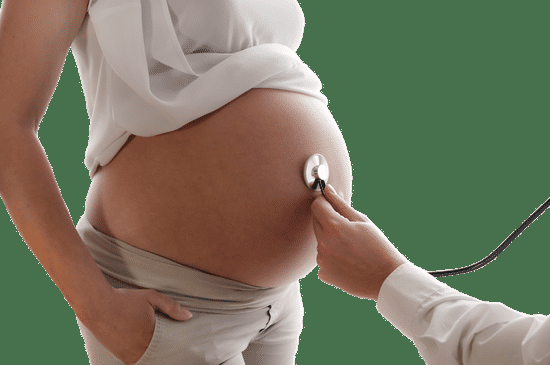How much cramping is normal in early pregnancy? During the first few weeks of pregnancy, women may experience some degree of cramping as their bodies undergo changes to accommodate the growing fetus. This article aims to provide a comprehensive understanding of early pregnancy and the normalcy of cramping during this stage.
Early pregnancy refers to the period from conception until the 12th week of gestation. It is a crucial time for both the mother and developing fetus, as important developments take place during this phase. Common symptoms of early pregnancy include nausea, breast tenderness, fatigue, and yes, cramping.
Normal cramping during early pregnancy is a common occurrence for many women. It is important to differentiate between what is considered regular and what may signal an underlying issue. Understanding the regularity and intensity of cramping, as well as its potential causes, can help expectant mothers feel more at ease during this stage of their journey into motherhood.
Normal Cramping During Early Pregnancy
Cramping is a common symptom experienced by many women in early pregnancy. It is often attributed to the changes and adjustments the body undergoes to accommodate the growing fetus. The uterus expands, ligaments stretch, and blood flow increases, leading to sensations of discomfort and mild cramping. Understanding how much cramping is normal in early pregnancy can alleviate anxiety and provide reassurance for expectant mothers.
In general, mild cramping in early pregnancy is considered normal. This type of cramping is often described as similar to menstrual cramps and is typically intermittent. The discomfort may come and go throughout the day, with no other associated symptoms. The intensity of the cramps can vary from woman to woman, but as long as it is manageable and not accompanied by severe pain, it is generally nothing to be concerned about.
The causes of normal cramping in early pregnancy are often related to the physical changes occurring in the body. As the uterus grows, it places pressure on surrounding organs and muscles. Additionally, hormonal fluctuations can also contribute to mild cramping. Understanding these factors can provide insight into why cramping occurs during early pregnancy and help alleviate worries about its normalcy.
| Types of Cramping | Implications |
|---|---|
| Mild Cramping | Intermittent discomfort similar to menstrual cramps; considered normal in early pregnancy |
| Moderate Cramping | More persistent discomfort that may warrant monitoring; consult a healthcare provider if concerned |
| Severe Cramping | Intense pain that should be immediately evaluated by a healthcare professional |
Types of Cramping in Early Pregnancy
During the early stages of pregnancy, it is common for women to experience cramping as the body goes through various changes to accommodate the growing fetus. It’s important to understand that not all cramping is cause for concern, but it’s essential to differentiate between normal and abnormal cramping.
Mild cramping is considered normal in early pregnancy and is often described as similar to menstrual cramps. This type of cramping may be caused by the uterus expanding and the ligaments stretching to support the growing embryo. Moderate cramping can also be normal, especially as the uterus continues to grow and hormonal changes occur. However, severe or persistent cramping should be evaluated by a healthcare provider.
When differentiating between normal and abnormal cramping, it’s crucial to consider the intensity, duration, and accompanying symptoms. While some level of discomfort is expected during early pregnancy, severe pain that is accompanied by heavy bleeding or dizziness could be indicative of a more serious issue such as an ectopic pregnancy or miscarriage.
It’s important for pregnant women to communicate any concerns about cramping with their healthcare provider so they can receive appropriate guidance and support throughout their pregnancy journey.
| Types of Cramping | Description |
|---|---|
| Mild Cramping | Similar to menstrual cramps |
| Moderate Cramping | Caused by uterus expansion and hormonal changes |
| Severe Cramping | Indicative of potential issues like ectopic pregnancy or miscarriage |
Symptoms to Watch Out For
During early pregnancy, it is common for women to experience cramping as the body undergoes changes to accommodate the growing fetus. It is important to understand what is considered normal and what may be a cause for concern when it comes to cramping during this stage. Here are some symptoms to watch out for when experiencing cramping in early pregnancy:
- Light spotting or bleeding along with cramps
- Severe or persistent abdominal pain
- Painful urination or difficulty passing urine
- Fever and chills in addition to cramps
These symptoms may indicate potential complications such as miscarriage, ectopic pregnancy, or urinary tract infections. If you experience any of these symptoms along with cramping, it is important to seek medical attention promptly.
In addition, if you have a history of complications in previous pregnancies or conditions such as endometriosis or polycystic ovary syndrome (PCOS), it is crucial to monitor and report any unusual cramping during early pregnancy. Your healthcare provider can provide personalized guidance based on your medical history. Always trust your instincts and seek immediate medical care if you feel that something is not right.
Remember that while some level of discomfort is normal, it’s better to err on the side of caution when it comes to the health of both you and your baby. Regular prenatal check-ups and open communication with your healthcare provider can help ensure a smooth and healthy pregnancy journey. If you have any concerns about the cramping you are experiencing, do not hesitate to reach out for professional advice.
Managing Cramping Discomfort
During early pregnancy, cramping discomfort can be a common and expected symptom as the body undergoes significant changes to accommodate the growing fetus. Understanding how to manage and alleviate cramping can help ease discomfort and promote a healthy and stress-free pregnancy.
Here are some tips and techniques for managing cramping discomfort in early pregnancy:
1. Stay Hydrated: Dehydration can exacerbate cramps, so it’s important to drink plenty of water throughout the day. Aim for at least 8-10 glasses of water daily to keep your body hydrated and reduce the likelihood of cramping.
2. Practice Gentle Exercise: Light exercise such as walking or prenatal yoga can help alleviate cramps by promoting circulation and relaxation. Avoid strenuous activities that may strain your body, but gentle movement can be beneficial.
3. Use Heat Therapy: Applying a warm compress or taking a warm bath can help soothe abdominal cramps. The warmth relaxes muscles and provides relief from discomfort.
4. Practice Proper Nutrition: Eating a well-balanced diet with plenty of fruits, vegetables, whole grains, and lean proteins can help prevent nutritional deficiencies that may contribute to muscle cramping.
5. Rest When Needed: Listen to your body and get adequate rest when experiencing cramping discomfort. Proper rest is essential for overall well-being during pregnancy.
It’s important to remember that while mild cramping is normal in early pregnancy, severe or persistent cramping should always be monitored closely by a healthcare provider. Always consult with your obstetrician or midwife if you have any concerns about the frequency or intensity of your cramps.
When to Consult a Healthcare Provider
During early pregnancy, it is normal to experience some cramping as the body undergoes changes to accommodate the growing fetus. However, it is important to be aware of when cramping may indicate a more serious issue and when it is necessary to consult a healthcare provider.
It’s common for women to wonder how much cramping is normal in early pregnancy. Normal cramping during this time can feel similar to menstrual cramps and may be mild to moderate in intensity. It is often accompanied by other symptoms such as slight spotting or light bleeding. This type of cramping is usually due to the uterus expanding and ligaments stretching to make room for the developing embryo.
However, there are instances when cramping may signal a problem that requires medical attention. Severe and persistent cramping, especially if it is accompanied by heavy bleeding, dizziness, or fainting, could be indicative of a miscarriage or an ectopic pregnancy.
In these cases, it is crucial to seek immediate medical care to ensure the health and safety of both the mother and the baby. Additionally, if the cramping is accompanied by fever or chills, it may indicate an infection that needs prompt treatment from a healthcare provider.
Keeping track of the frequency, intensity, and duration of cramping can help provide valuable information for healthcare providers when assessing any potential concerns during early pregnancy. It’s always best to err on the side of caution and consult a healthcare professional if there are any doubts or worries about the nature of cramping during early pregnancy.
Regular prenatal check-ups also provide an opportunity for expectant mothers to discuss any concerns they have about their symptoms with their healthcare provider.
Personal Experiences
Many women experience cramping during the early stages of pregnancy, and it can often be a source of worry and anxiety. Hearing personal experiences from other women who have gone through similar situations can provide reassurance and valuable insights into what is considered normal.
Real-Life Stories
Several women have shared their experiences with cramping during early pregnancy, describing it as similar to menstrual cramps but sometimes milder or more sporadic. Many have reported feeling worried at first, and some even mistook the cramping for the onset of menstruation. However, they later learned that mild cramping can be a common symptom of early pregnancy as the uterus begins to expand and prepare for the growing fetus.
Relatable Anecdotes
One woman remembered feeling mild to moderate cramping in the weeks leading up to her missed period. She initially thought nothing of it until she received a positive pregnancy test result. Another woman shared how she experienced more severe cramping around the time when her menstrual period would normally occur, causing her to seek medical advice.
Both stories had happy outcomes, as they went on to have healthy pregnancies. These real-life accounts serve as a reminder that while cramping in early pregnancy can be concerning, it is often a normal part of the process.
Educational and Reassuring
Hearing personal experiences from others can help pregnant women feel less alone in their journey and provide them with some comfort and understanding about what is considered normal during early pregnancy. It’s important to remember that every woman’s experience will be different, but personal stories can offer valuable perspective and support during this crucial time.
Conclusion
Cramping is a common symptom experienced by many women during early pregnancy. It is important to understand what constitutes normal cramping and when it may be a cause for concern. In this section, we will delve deeper into the different types of cramping, warning signs to watch out for, and when to seek medical attention.
Normal vs Abnormal Cramping
It’s crucial to differentiate between normal and abnormal cramping during early pregnancy. Normal cramping typically feels similar to menstrual cramps and is often mild or moderate in intensity. It may come and go, and is usually localized in the lower abdomen. On the other hand, abnormal cramping may be severe, persistent, or accompanied by other symptoms such as heavy bleeding or sharp pain.
Warning Signs and When to Seek Medical Attention
While mild cramping is generally considered normal in early pregnancy, there are certain warning signs that should not be ignored. If you experience severe or persistent cramping, along with heavy bleeding, dizziness, fever, or shoulder pain, it’s important to seek medical attention immediately. These could be indicators of an ectopic pregnancy or miscarriage.
Consulting a Healthcare Provider
Regular prenatal care is essential for monitoring your health and the well-being of your baby. It is recommended to consult with your healthcare provider if you have any concerns about cramping during early pregnancy. Additionally, if you have a history of complications in previous pregnancies or are at high risk for miscarriage, seeking prompt medical advice can help ensure the best possible outcome for your pregnancy.
Additional Resources
In conclusion, it is essential for expectant mothers to understand the normalcy of cramping during early pregnancy. As discussed, experiencing mild to moderate cramps is considered normal and is often attributed to the changes taking place in the body as it prepares for pregnancy. It is crucial to differentiate between normal and abnormal cramping, and to be aware of any warning signs that may indicate a cause for concern.
Pregnant women should monitor their symptoms closely and seek medical attention if they experience severe or persistent cramping, especially if accompanied by heavy bleeding, fever, or dizziness. Regular prenatal check-ups and communication with healthcare providers are vital in ensuring the well-being of both the mother and the developing baby.
It’s natural for many women to feel anxious about cramping during early pregnancy, but by being informed about what is typical for this stage, seeking appropriate care when necessary, and following self-care measures can help alleviate discomfort and ensure a healthy pregnancy. For additional support and information on this topic, readers are encouraged to explore the provided resources or consult with their healthcare provider.
A proactive approach to understanding and managing cramping will contribute positively to the overall experience of early pregnancy.
Frequently Asked Questions
When Should I Be Concerned About Cramping in Early Pregnancy?
Cramping in early pregnancy can be concerning if it is severe, persistent, or accompanied by other symptoms such as bleeding. It’s important to consult a healthcare professional to rule out any potential issues.
Should I Be Cramping at 3 Weeks Pregnant?
It is not uncommon to experience mild cramping at 3 weeks pregnant, as your body undergoes changes to accommodate the growing embryo. However, if the cramping becomes severe or is accompanied by heavy bleeding, it’s best to seek medical advice.
Is It Normal to Feel Cramps at 5 Weeks Pregnant?
Feeling cramps at 5 weeks pregnant is normal for many women as the uterus continues to expand and the body adjusts to pregnancy. However, if the cramps are intense or prolonged, it’s advisable to speak with a doctor for reassurance and guidance.

Welcome to my fertility blog. This is a space where I will be sharing my experiences as I navigate through the world of fertility treatments, as well as provide information and resources about fertility and pregnancy.





